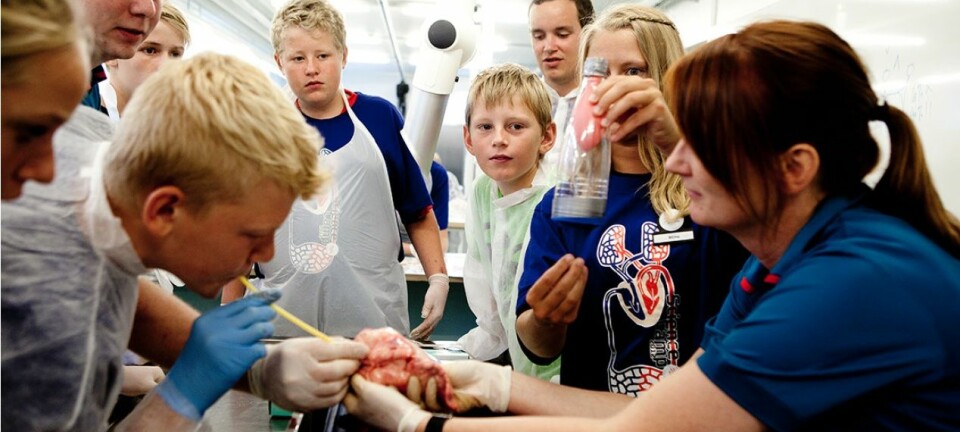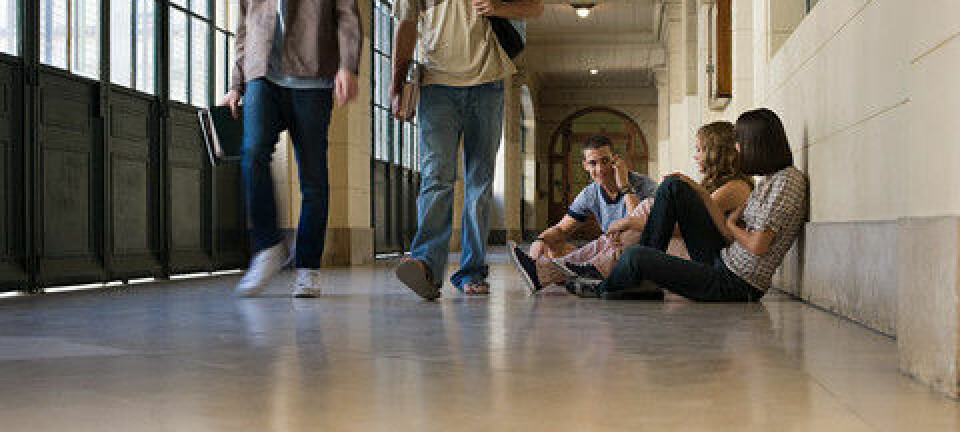Children who walk to school concentrate better
Children who walk or cycle to school rather than being driven by their parents have an increased power of concentration, and the effect of this ‘exercise’ lasts all morning.
If you’re in the habit of driving your children to school, you’re not really doing them much of a favour.
Rather, you should let them transport themselves to school, because that will make them concentrate better at school.
This is one of the main conclusions of a comprehensive Danish project – the ‘Mass Experiment 2012’ – which set out to examine the link between diet, exercise and the power of concentration.
Almost 20,000 schoolchildren aged 5-19 participated in the study.
The pupils answered questions about their exercise habits and performed a simple concentration test of assembling a puzzle in the shape of a face.
Let them walk to school
The children who were transported to school by car, train, or bus scored lower in the test than those who somehow made the journey to school themselves.
"It is really interesting that the exercise you get from transporting yourself to school reflects on your ability to concentrate for about four hours into the school day,” says Professor Niels Egelund, of Aarhus University, who is responsible for the research design.
“Most people are familiar with the feeling of being fit for fight after using the body. It’s surprising that this effect actually lasts that long.”
Part of Danish Science Week
The Mass Experiment 2012 was part of the annual Danish Science Week in September.
This year’s Mass Experiment was carried out by researchers from Copenhagen and Aarhus Universities in collaboration with Research Center OPUS and Danish Science Communication.
The Mass Experiment 2012 also looked into what influence breakfast, snacks and lunch have on the pupils’ ability to concentrate.
The results showed that regular meals during the school day have a positive effect on the power of concentration. This is an important observation in times when many teenagers don’t eat on a regular basis over the course of a school day.
A new Mass Experiment each year
Each year, the Mass Experiment with Danish schoolchildren has a new theme.
In 2007 the theme was analysis of water quality in the school drinking water and in the children's own water bottles. It turned out that there was a significant amount of bacteria growing in the water bottles.
The 2008 Mass Experiment consisted of an analysis of taste preferences. It turned out that boys have a slight preference towards sweet taste, that girls have a stronger sense of taste than boys and that Danish children love fish.
2009 saw an analysis of indoor climate in the classroom. More than half of the classrooms were found to have CO2-levels above the recommended level.
In 2010, the experiment consisted of an analysis of classroom acoustics. The findings suggested that the acoustics in the classrooms are fine for traditional teaching but bad for modern, project-oriented group work.
The 2011 experiment looked at the skin colour of the pupils and investigated the effects of sunscreen.









